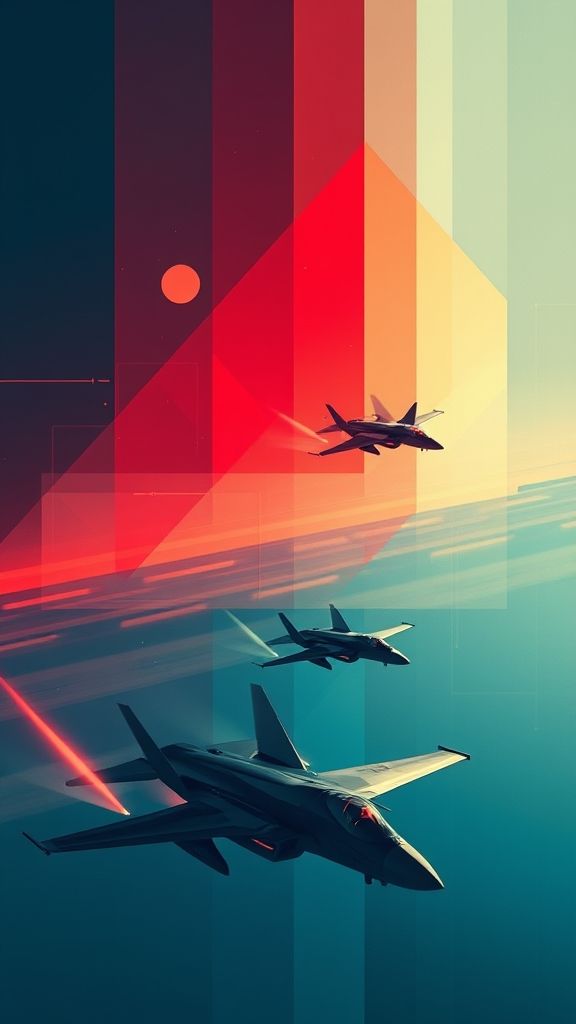Korean Air Unveils Cutting Edge Autonomous Aircraft At Adex 2025
Korean Air’s Commitment to Unmanned Aerial Vehicles Takes Center Stage at Seoul ADEX 2025 …
22. October 2025

The Netherlands has taken a significant step towards strengthening its military capabilities by joining the US Air Force’s Collaborative Combat Aircraft (CCA) programme. This innovative initiative aims to develop autonomous unmanned air systems that can be controlled by fighter pilots from their aircraft, enhancing the effectiveness of manned fighter jets such as the F-35.
By signing the letter of intent on October 16, State Secretary for Defence Gijs Tuinman demonstrated the Netherlands’ commitment to making progress with innovation and cooperation. This strategic partnership will enable the country to assume a leading role in the development of autonomous unmanned air systems, which is one of five key areas identified in the Defence Strategy launched in April.
Integrated unmanned air systems have the potential to significantly enhance the effectiveness of manned fighter aircraft. These advanced systems can provide additional sensor range, increase payload capacity, and enable high-risk missions over enemy territory with greater precision and speed. In contrast to traditional manned fighter aircraft, which require significant resources and investment to develop and maintain, integrated unmanned air systems are faster and cheaper to produce.
The Ministry of Defence has already announced plans to work with General Atomics Aeronautical Systems (GA-ASI) to develop smaller unmanned aerial vehicles (UAVs). These drones will be designed for intelligence, surveillance, and reconnaissance (ISR) capabilities, leveraging the expertise of VDL in their production. The goal is to have these systems operational by next year, marking a significant milestone in the Netherlands’ unmanned aerial capabilities.
The signing of the letter of intent also underscores the importance of transatlantic cooperation in defence and security matters. The Defence Industry Days at the Netherlands embassy in Washington provided a platform for representatives from companies and governments to engage in panel discussions and network meetings. This event highlights the growing partnership between the Netherlands and the US, with both nations working together to advance their respective interests in unmanned systems.
In the longer term, Dutch knowledge institutes and companies will play an increasingly important role in the American research and development programme. The letter of intent marks the beginning of the Netherlands Defence organisation’s participation in this form of cooperation, which is expected to be further developed over the coming years. By engaging with US technology companies, the Netherlands aims to strengthen its industrial and technological base, while also contributing to the advancement of unmanned systems.
The US has long been at the forefront of global defence innovation, with American technology companies driving advancements in areas such as autonomous systems, hypersonic flight, and advanced materials. The Netherlands Defence organisation has established close ties with these companies, cooperating on high-tech military materiel and equipment. By joining forces with the US Air Force and participating in the CCA programme, the Netherlands will benefit from access to cutting-edge technology and expertise.
The partnership between the Netherlands and the US on defence matters is growing stronger by the day. As the two nations work together to develop autonomous unmanned air systems, they are also strengthening their partnerships in other areas, including research and development, joint military operations, and capacity building. This strategic partnership has significant implications for global security and defence, as both countries aim to advance their interests while promoting stability and cooperation.
The Netherlands’ decision to join the US Air Force’s Collaborative Combat Aircraft programme represents a major milestone in the country’s efforts to enhance its military capabilities. By participating in this innovative initiative, the Netherlands is poised to assume a leading role in the development of autonomous unmanned air systems, which will enable the country to address emerging defence challenges with greater precision and speed.
The CCA programme’s potential impact on global security cannot be overstated. As the development of autonomous unmanned air systems continues, it is likely that other countries will take notice and seek to establish similar partnerships. The Netherlands’ involvement in this initiative positions the country at the forefront of unmanned system innovation, with significant implications for its national security and defence strategy.
The Dutch government’s decision to join the CCA programme demonstrates its commitment to advancing its military capabilities and contributing to global stability. As the programme moves forward, it will be exciting to see how these advanced systems contribute to the effectiveness of manned fighter aircraft and enable the Netherlands to address emerging defence challenges with greater precision and speed.